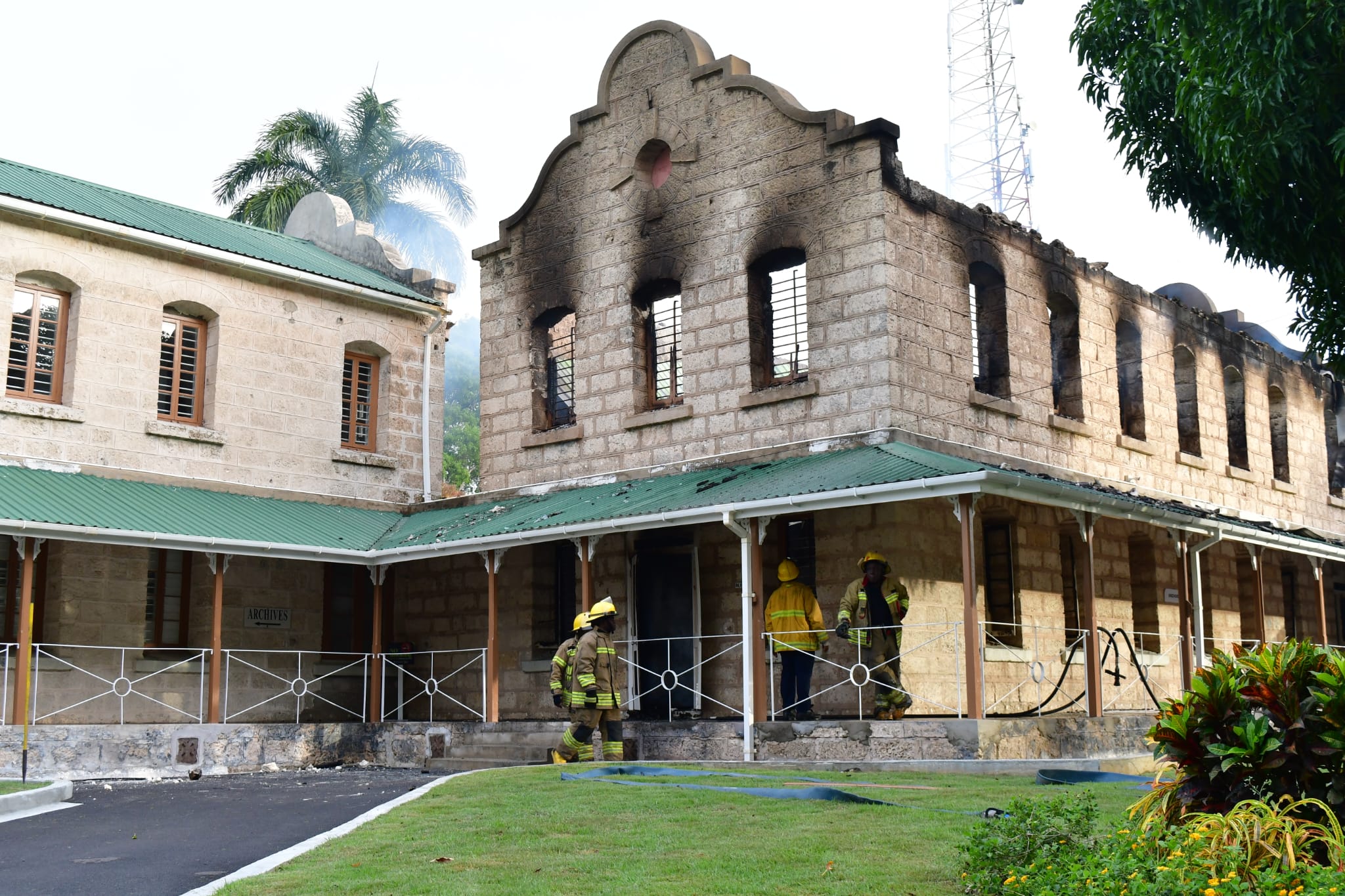The Barbados National Archives Fire Incident and Efforts to Preserve Historical Records: Insights on Lineage, Cultural Tourism, and Digitization Plans

June 20, 2024
The Barbados national archives fire highlights issues in record maintenance. Plans for a slavery museum at the Archives Department aim to preserve history and promote cultural tourism and genealogy.
The devastating fire that destroyed a section of Barbados’ national archives at the Black Rock, St Michael facility, draws attention to several issues relating to the maintenance and protection of important records.
As more Barbadians at home and in the diaspora seek to gain more knowledge about their lineage and connect with their roots, they are seeking the services of our Archives Department.
The department has also sparked interest in this area by encouraging people to use its facilities. As the saying goes, to know where you have come from provides clarity about where you may be going.
In 2020, the administration announced big plans to create a slavery museum at the Barbados Archives Department. Then Minister of Culture, John King announced the initiative as a precursor to a much larger museum that was to be developed.
“Persons will be able to view exhibits, which hold significance to our past. For it is imperative, indeed essential, that the over 200 years of enslavement in Barbados need to be memorialised and recorded for posterity, especially since the majority of us have been a people who have known freedom for a shorter time than the 200 years of enslavement and the over 100 years of racial apartheid that followed,” he reminded the country.
It is important to note that genealogy and cultural tourism represent big business. Ghana has preserved its Gate of No Return at the Cape Coast Castle, a major historical site and last stop on a guided tour to where enslaved Africans were led to waiting ships. It is regarded as a must-see for visitors to the West African nation and is even more compelling and emotional for people of African descent.
At the event back in 2020, King also made another important declaration. He revealed that digitisation of the documents held at the Archives would “start shortly”.
The public was not updated on how far along that digitisation process had reached – the purchase of the hardware, the hiring of additional staff or contracting of consultants to undertake the process.
What we do know is that after this week’s blaze, many records were lost forever. It is a shame and heartbreaking for those who have an appreciation for the value of such historic documents.
If we examine the United States of America, for example, that country has developed a suite of laws designed to protect national records because of their irreplaceable value.
The National Archives holds the United States of America Declaration of Independence, the Bill of Rights, and the country’s Constitution documents.
The national record keeper states: “We also hold in trust for the public, the records of ordinary citizens—for example, military records of the brave men and women who have fought for our country, naturalisation records of the immigrants whose dreams have shaped our nation, and even the cancelled check (sic) from the purchase of Alaska.”
The institution outlines that the preservation of records helps the country to “claim” its rights and entitlements, hold elected officials accountable for their actions, and to document the history of the country.
For those who have been following American political activity, they would be aware that former president Donald Trump is facing several federal criminal charges from his unlawful retention of documents and material that should have been handed over to the National Archives when he left office in January 2021.
The scores of boxes which he carted off to his Florida home had to be recovered with the help of law enforcement. That is how seriously the American government takes the matter of national records.
With the discovery this week that among those records that were forever lost during the fire were vestry records, City Council records, records of the Mental (Psychiatric) Hospital and the General Hospital, one can fully appreciate the serious implications of the destruction.
After the announcement of an investigation into the fire which officials say was sparked by a lightning strike, what the public needs to know is how quickly the promised digitisation process is expected to commence.
Disasters come in many forms, and with an intense hurricane season being projected, Barbadians deserve to know what the plan is to protect not only the assets of the Archives Department but all other major public installations.


